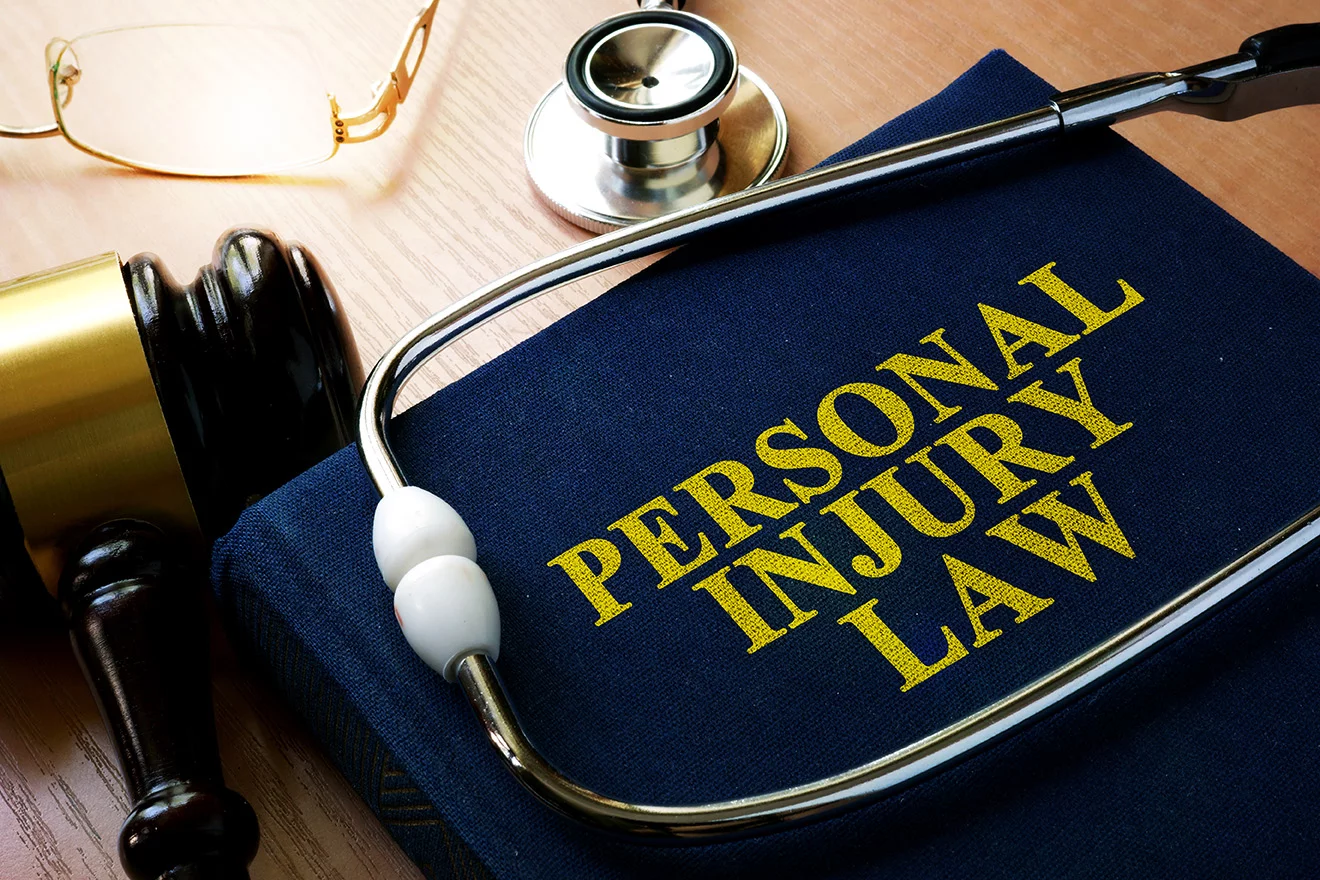Within civil procedure, the legal term ‘statute of limitations’ refers to the length of time in which someone has to file a claim. California state law generally puts the statute of limitations for most types of personal injury claims at two years from the date of the injury [1]. There are some circumstances where this time limit might be extended or tolled, but for the most part, it is not flexible. If the statute of limitations has expired, the court will deny the claim and the injured party will not be able to take legal action. Therefore, it is best to speak to a personal injury attorney as soon as possible after being injured in an accident.
The Statute of Limitations for Personal Injury in California is 2 Years
In the state of California, you have two years in which you can file a personal injury claim after an accident. If the deadline is expired by even a day, the court will almost certainly deny your claim. There may be situations where the injured party is not capable of filing the claim, like when people are underage or have been declared mentally incompetent. Most of the time in these situations, there is a parent or legal guardian who can file a claim for these individuals and there are systems in place to protect the rights of the victim. However, it isn’t unheard of for a judge to toll the statute of limitations so that the two years do not start until the injured party turns 18 or is declared to be mentally competent.
When the Statute of Limitations for Personal Injury in California Starts
The statute of limitations for personal injury cases begins counting on the date that the injury occurred. There are some rare situations where the limit may be tolled, and the clock begins counting at a later date due to extenuating circumstances. These exceptions come with their own rules and guidelines and are just as strictly adhered to. Even if an exception may apply to your situation, it is best to act as quickly as possible to ensure that you are able to make your claim before the time limit expires.
Main Exceptions for Personal Injury Statute of Limitations in California
While you do not want to rely on the possibility that the statute of limitations may be extended for you, it is good to know what circumstances might allow for it. The most common situations that could result in the limit being extended include [2] but are not limited to:
Delayed Discovery – There are many reasons why someone may not realize they have been injured at the time of an accident. They may be in shock or have an internal injury that does not show symptoms right away. They may not even know that they were involved in some kind of accident. In these situations, the statute of limitations may begin counting from the date that the injury was discovered.
The Victim is a Minor or Incompetent – If the injured party is underage or deemed mentally incompetent by the court, they are not able to take legal action on their own behalf. Sometimes, the statute of limitations will not start counting until the victim turns 18 or a judge declares them to be competent. More often than not, a parent or legal guardian will file a claim on the victim’s behalf soon after the accident and resulting injury.
Defendant is Out of State – If the defendant is in another state or country, they are outside of the jurisdiction of the California state courts. Therefore, in these situations, the statute of limitations may be paused until the defendant returns to California.
Type Specific – Some types of personal injury claims come with their own unique circumstances that call for different standards for the statute of limitations. Some are shorter, while others are longer. There may also be additional guidelines for exceptions. These limits are just as strict as other types of personal injury claims, so it is important to know what laws apply to your situation and act as quickly as possible.
Types of Personal Injury Claims with Different Statute of Limitations
Two years is the standard statute of limitations for personal injury claims in general. Unless the injury falls under a short list of particular types of claims, the time limit will be two years. The types of claims that do have their own separate regulations for the statute of limitations include injuries caused by criminal acts, defendants who are government entities, and incidents involving medical malpractice.
Criminal Acts
Personal injury claims are a civil matter but can often overlap with criminal charges. When this happens, there can be some changes to the statute of limitations.
Childhood Sexual Abuse – Personal injury procedure already allows for some considerations to be made for victims who are minors. The egregious nature of the crime combined with the amount of time it can take for resulting injuries to become apparent justifies a significant difference between the statute of limitations placed on victims of these crimes compared to normal personal injury victims. Previously, claims for personal injuries caused by childhood sexual abuse could be filed up to 22 years after the victim turns 18. However, new legislation that was introduced in 2023 will end the civil statute of limitations for childhood sexual abuse crimes. AB 452 will take effect in 2024 and will impact all CSA cases that take place after Jan 1, 2024 [3].
Domestic Violence – The courts also acknowledge that cases involving domestic violence may also require additional time for claims to be made. If an injury is caused by domestic violence, the victim may have three years from the date of the injury in which to file a claim.
Felonies – There are many different kinds of felonies, several of which can involve injury being caused to another person. Generally, victims have one year from the date of the criminal judgement in which to file a personal injury claim against the defendant. For injuries caused by severe crimes such as sexual assault or attempted murder, they may have up to ten years after the date of discharge from parole.
Government Entities
It may come as no surprise that suing a government entity is more complicated than suing a private citizen. Personal injury claims involving the government can include:
- City Transportation Accidents
- Hazards in Government Buildings
- Poorly Maintained Roads / Sidewalks
There is a specific process for filing such claims when it comes to California state agencies. The first step is to file an administrative claim within 6 months of the date of the injury [4]. The other party then has 45 days from the date of filing in which to respond. If they deny the claim, you have 6 months from the date of denial to file a lawsuit. If they do not respond at all, a lawsuit can be filed up to 2 years from the date of the injury. When it comes to federal entities, that statute of limitations extends to 2 years. The Federal Tort Claims Act (FTCA) allows individuals 2 years to file an administrative claim [5].
Medical Malpractice
Medical malpractice is a subcategory of personal injury claims that involves the negligence of health care professionals. This can include but is not limited to:
- Surgical Errors
- Failure to Treat
- Misdiagnosis
- Improper Medication
The state of California has a separate unique statute of limitations for personal injury claims involving medical malpractice. These claims must be filed within 1 year of the date that the injury was discovered or should have been discovered through reasonable diligence. Or within 3 years of the occurrence of injury [6]. Whichever instance comes first is when the statute of limitation ends. There are additional rules and procedures for filing a medical malpractice claim, so it is important to speak to an attorney as soon as possible to avoid running out of time.
Can You Still Sue if You Miss the California Personal Injury Statute of Limitations
If the statute of limitations has passed, it is unlikely that you will be able to take legal action. Even if you attempt to file, the claim will be denied. Not knowing about the statute of limitations is not a valid cause for extension. It is rare for an extension to be granted and the courts are very strict about deadlines. This is why it is so important to speak to an attorney as soon as possible after suffering a personal injury. Two years is a much shorter time frame than people realize, especially when dealing with the aftermath of an accident and the resulting injuries.
Contact Mesriani If You Have Been Injured and Need to File a Personal Injury Claim
There are many reasons why someone might wait too long to file a personal injury claim. They may feel overwhelmed by the number of things they need to take care of in the aftermath of their accident. They may believe that the other party will act in good faith and remedy the situation on their own. They may be restricted by the extent of their injuries. They may not realize how severe their injuries are and think filing a claim would be unnecessary. Regardless of the personal reasons for not filing a claim right away, once the statute of limitations expires, the opportunity has been lost. It is in your best interest to speak to a personal injury lawyer as soon as possible after an accident so you can get the process started. Our firm works hard to ensure that everything is done properly and swiftly. Our office is located in Santa Monica and we provide legal representation to personal injury victims throughout Los Angeles and Southern California. If you have been injured in an accident due to someone else’s negligence, call Mesriani Law Group today for a free consultation.
Sources
[1] https://www.courts.ca.gov/9618.htm [2] https://www.nolo.com/legal-encyclopedia/what-is-the-personal-injury-statute-of-limitations-in-california.html [3] https://sd09.senate.ca.gov/news/20230206-addis-and-skinner-introduce-bill-end-civil-statute-limitations-child-sexual-abuse [4] https://www.courts.ca.gov/9618.htm [5] https://www.findlaw.com/legalblogs/personal-injury/when-is-it-too-late-to-sue-a-government-agency/ [6] https://www.nolo.com/legal-encyclopedia/what-the-statute-limitations-medical-malpractice-lawsuit-california.html
Personal Injury Statute of Limitation FAQs
What is the statute of limitations for personal injury in California?
Most types of personal injury claims in California must be filed within 2 years of the date of the injury. There are some specific types of cases that have their own rules such as medical malpractice, but in general, 2 years is the standard. Exceptions and extensions are very rare, and most courts will deny any claim filed after the statute of limitations has expired. The legal process can be long and complex, so it is best not to waste any time.
What is an exception to the statute of limitations in California?
There are times when the statute of limitations may be extended or paused due to extenuating circumstances. This includes situations where the injured party is a minor or if the accused party has left the state. Some extreme situations such as medical malpractice claims wherein a doctor mistakenly left surgical equipment inside the patient’s body may also result in an exception for the statute of limitations. Extensions are up to the discretion of the court, so it may not be wise to assume you will be granted more time. Contact a personal injury lawyer as soon as you can.
What is the discovery rule in California for personal injury?
Sometimes, a person may be injured without knowing. This can be due to injuries that do not show symptoms right away, or minor injuries that become exacerbated over time. People often walk away from an accident feeling fine and then find out later that they had been seriously injured. In medical malpractice cases, it is not uncommon for patients to not even know that anything went wrong at all until much later. Because of this, the statute of limitations is sometimes tolled and begins counting from the date that the person discovers they were injured.








